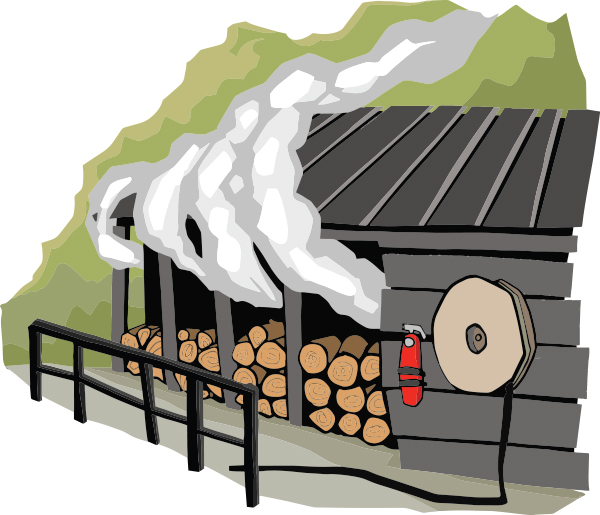In college, my roommate and I had a VCR with one tape: Braveheart. We watched it daily. Sometimes twice. I memorized the scenery as much as the dialogue. Regardless of the film’s historical accuracy, Scotland looked beautiful and I dreamed of going. Twenty years later, last spring, I finally had a reason. I had just found some remarkable smoked salmon and I needed to learn about it.
Visiting Inverawe.
To get to Inverawe, you drive about eighty miles north of Glasgow, deep into the Highlands, to the mouth of the river Awe—aptly named, I might add. There lies Inverawe Smokery. The place is straight from central casting. The estate where the smokery sits has been in the Campbell family so long it boasts not one, but two ghost stories, one of which was immortalized in Robert Louis Stevenson’s Ticonderoga. They raise Shetland ponies. You hear things in the wind. In the morning, when everything is damp with dew and mist dribbles down the mountain, you swear you see fairies.
The Inverawe smokehouse lies at the dead end of an oak-lined lane, downwind from the Campbell-Preston family’s centuries-old stone house. Walk past its black tar walls, keep the Awe river on your left, climb the foothill to Ben Cruachan, and you’ll leave tree cover quickly, coming upon hillocks of heather and gorse. You’ll be surrounded to the north and west by Loch Etive, which empties, several miles west, into the North Sea. The loch (lake), walled in by steep, treeless hills, holds the trout and salmon the family use. The forest along the road is where they collect windblown oak to fuel the smokehouse. It’s all as stunning and idyllic as it sounds and when we visited last spring I thought to myself, “You’d have to work hard to screw this up.”
I was overstating it of course. It’s actually quite easy to screw it up.
It’s difficult to smoke fish the way they do at Inverawe.
They use whole oak logs, employing no climate control beyond the fires they light. It’s the old way of smoking fish, rarely done today, and it’s quite tricky.
Robert and Rosie Campbell-Preston started smoking fish in 1974 with one smokebox. Using locally farmed salmon and trout, they diverted the smoke of slow burning white oak logs into a small room where the fillets hang. There were no temperature controls. There still aren’t. It’s a very tricky process managing fire and smoke like this. It’s traditional, the way it’s always been done, but once HVAC and thermostats came around almost every fish smoker installed them and turned their back on free-form smoking. Instead, the Campbell-Preston’s retain smokemaster Tony Hynes. He shows up in the middle of the night and during holidays because fires never sleep. They’re so committed to doing things the old ways they even retired their mechanical wood splitter. These days a local teenage caber tosser comes by once a week to chop the cords of oak necessary to fuel the smokeboxes.
Robert and Rosie’s son Patrick runs the company now. He’s added a few smokeboxes but the curing process has stayed the same. They’re making the best smoked fish I’ve had in ages, and I’m excited this spring to import their fish to the states for the first time.
The traditional smoking style is amazing for flavor and texture.
The whole oak logs impart a more subtle flavor than the sawdust that most smokers use today. Inverawe’s lean fish also have a firm texture. They don’t break down over the long smoke time. It’s one of the characteristics I first noticed about their fish and one that you’ll pick up on right away. Their salmon and trout are never soft or mushy like more commercial varieties can be. They’re firm. Not tough, not overcooked, just toothsome, with a snap when you bite.
Their Scottish salmon is as delicious as you can imagine, but it’s the trout that you’re going to fall for. It’s the family’s favorite, their crew’s favorite—and mine too.
New to our shelves this spring, their exquisite blue box sports the Royal Seal (the Queen is a customer). It comes packed with a quarter pound each of oak smoked salmon and trout, plus a 12 ounce basin of their very popular salmon terrine.

